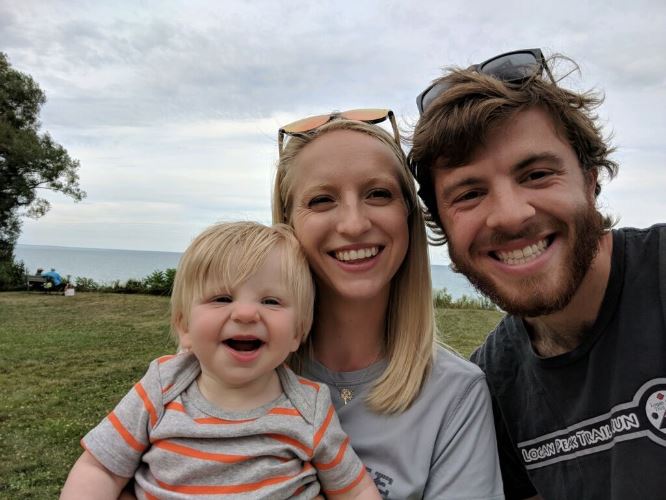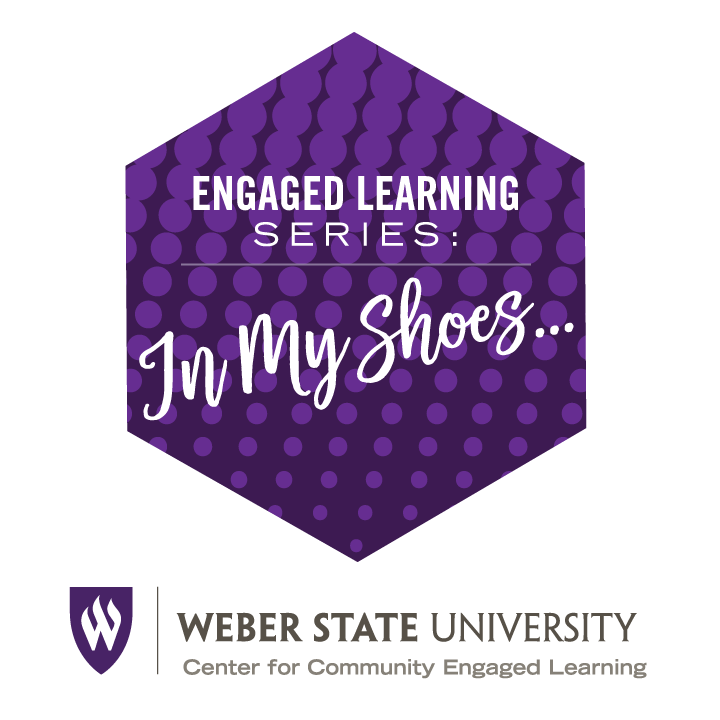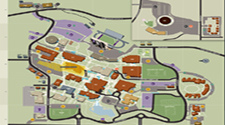Eliminating the Hallway Hesitation!
Graduate School in Mathematical Sciences
October 24th, 2019, by Andrew Whetten, applied mathematics alumnus

Sitting in the hallway before class is not a typical place to find answers. As a senior in the applied mathematics program at Weber State, I was pulled between two options upon graduation. The countless days of budget friendly meals like turkey sandwiches and Honey Bunches of Oats had made me eager to find quick employment. In spite of this, I wanted more from my education. I felt that I had only scratched the surface of my subject material, and I was unfamiliar with what a career involving graduate, doctoral, and professional research in mathematics or statistics entailed. I was intimidated about how my experience at Weber State would compare to undergraduate students who boasted an Ivy League or R1 university education.
I needed guidance, and it came in that very hallway, when Dr. Julian Chan suddenly appeared next to me and said “You need to consider graduate school. It would be a great career move, and you would make an excellent applicant. I would be happy to write you a letter of recommendation."
This personal guidance gave me the push I needed to start the application process. I have since completed a Masters of Science in Statistics at Utah State University, and I am in my first year of my doctoral program in Mathematics at the University of Wisconsin Milwaukee. My time at Weber State was instrumental in my preparation and success in graduate school. In the following list, I detail advice for students considering graduate school, primarily (but not exclusively) for the Mathematical Sciences:
FIRST TIP: Convince yourself to seriously consider a master's degree in Applied Mathematics, Statistics, and other mathematical disciplines.
There is high demand for Computational Scientists in biostatistics, mathematical biology, computer science, data science, physics, economics, medicine, and many other disciplines in the hard and social sciences. My confidence, understanding, and mastery of material was transformed and magnified during my graduate studies. The research experience gained during a thesis-based masters degree provides vital guidance that is unlike any other in higher education.
SECOND TIP: Do not be intimidated by those around you.
If you love mathematics (or other similar disciplines), and you have a desire to learn more, do not let feelings of inferiority around your peers discourage you from pursuing graduate education. A motivated student at Weber State can find the needed preparation to succeed at the graduate level. The prioritization of student education and growth at Weber State provides support and guidance that is commonly lacking in undergraduate programs at more prestigious universities.
THIRD TIP: Go where you can find funding.
I was given advice to go where a department is willing to financially support you through your studies. It sounds superficial, but when the department is invested in your education and professional development (as a teaching assistant, research assistant, etc.), they give you that extra attention in support of your success. Taking the extra time to explore the opportunities and research interests of several graduate programs ensures that you have affordable options that fit your research, educational, and career interests.
FOURTH TIP: Exceptional graduate students are created outside the classroom.
The extracurricular articles and texts you read make you stand out. Read extra about topics that fascinate you or catch your interests. Only a fractional portion of a wholesome graduate experience is cultivated during class time and from class materials! Encourage yourself to be more curious and take the extra minutes here and there to read more about what interests you.
FIFTH TIP: Make the time to find meaning in your life outside your graduate studies.
Graduate school is a full-time job in most of the Mathematical Sciences. You will spend most of your waking hours studying, teaching, and researching. Graduate school does NOT, however, mean your life should go on hold. Make time for family and wholesome activities including exercise and other hobbies, and reduce time spent on any activities that do not improve you as a person.
This advice, though not comprehensive, summarizes several key elements that allowed me to excel in my studies, research, and employment opportunities. I have personally witnessed several Weber State mathematics students go on to have successful and enjoyable graduate school experiences that opened great career options to them that would have not been otherwise available. My hope is Weber State college of science students will continue to find purpose and fulfillment in graduate studies.
Photo credit to Andrew and his family
Office hours
Semesters
Monday - Thursday:
6:30 a.m. - 11 p.m.
Friday: 6:30 a.m. - 10 p.m.
Saturday: 6:30 a.m. - 6 p.m. Sunday: Closed
Holidays & Breaks Hours may vary
Mailing address
Weber State University
College of Science
1415 Edvalson St., Dept. 2501
Ogden, UT 84408-2501



